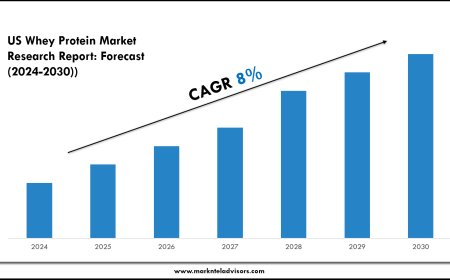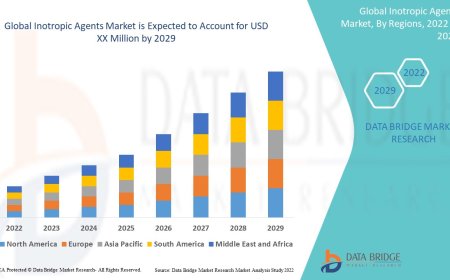Top 10 Fitness Apps to Stay Healthy
Introduction In an era where digital wellness tools are abundant, finding a fitness app you can truly trust is harder than ever. With thousands of apps claiming to transform your body, boost your energy, or melt away fat, the market is flooded with flashy interfaces, misleading claims, and invasive data practices. But not all apps are created equal. The most effective fitness applications are thos
Introduction
In an era where digital wellness tools are abundant, finding a fitness app you can truly trust is harder than ever. With thousands of apps claiming to transform your body, boost your energy, or melt away fat, the market is flooded with flashy interfaces, misleading claims, and invasive data practices. But not all apps are created equal. The most effective fitness applications are those grounded in science, designed with user privacy in mind, and built to foster long-term habits not quick fixes.
This guide presents the top 10 fitness apps you can trust rigorously evaluated for accuracy, transparency, user experience, and proven outcomes. Each app on this list has been selected based on independent reviews, clinical studies, user feedback over time, and adherence to ethical data standards. Whether you're aiming to lose weight, build strength, improve mobility, or simply move more each day, these apps offer real value without the noise.
Forget gimmicks. Forget paid influencers. This is about sustainable health powered by technology you can rely on.
Why Trust Matters
When it comes to your health, trust isnt optional its essential. A fitness app that misrepresents calorie burn, pushes unsafe workout routines, or sells your personal data undermines the very purpose of using it. Many popular apps rely on aggressive monetization strategies: intrusive ads, subscription traps, and algorithms designed to keep you hooked rather than healthy.
Trusted fitness apps prioritize three core principles: accuracy, privacy, and sustainability. Accuracy means the apps metrics whether step count, heart rate estimation, or calorie expenditure align with peer-reviewed research and wearable device standards. Privacy means your biometric data, location, and workout history arent shared with third-party advertisers or sold to data brokers. Sustainability means the app encourages consistent, realistic progress without promoting extreme diets, overtraining, or unrealistic body goals.
Apps that earn trust often have transparent methodologies. They cite sources for their exercise plans, disclose how algorithms work, and allow users to export or delete their data at any time. Many are developed or endorsed by certified fitness professionals, physical therapists, or nutrition scientists not marketing teams.
Choosing a trusted app reduces the risk of injury, prevents burnout, and ensures your efforts lead to lasting change. It also protects your mental well-being by avoiding comparison traps and toxic fitness culture. The right app doesnt just track your progress it respects your journey.
Top 10 Fitness Apps to Stay Healthy
1. Nike Training Club
Nike Training Club (NTC) stands out as one of the most reliable and comprehensive fitness apps available. Developed in collaboration with professional trainers and sports scientists, NTC offers over 200 free workouts ranging from 10-minute mobility sessions to 60-minute strength and endurance programs. What makes NTC trustworthy is its evidence-based programming every routine is designed with biomechanical safety and progressive overload in mind.
The app adapts to your fitness level, whether youre a beginner or advanced athlete, and provides detailed video demonstrations with form cues. Unlike many apps that push high-intensity workouts daily, NTC includes rest days, recovery yoga, and mindfulness sessions promoting balanced training. There are no ads, no push notifications designed to induce guilt, and no paywalls for core features. All content is free, with optional premium workouts available for those seeking more advanced programming.
NTC syncs seamlessly with Apple Health, Google Fit, and Apple Watch, ensuring accurate data tracking. Its community features are minimal and non-intrusive, focusing on personal progress rather than social comparison. For users seeking a clean, science-backed platform that builds strength, endurance, and resilience without burnout, Nike Training Club is a top-tier choice.
2. MyFitnessPal (by Under Armour)
MyFitnessPal remains the gold standard for nutrition tracking, with a database of over 14 million foods and a barcode scanner that makes logging meals effortless. While the app has faced criticism in the past for data accuracy and ad placement, its recent updates have significantly improved transparency and user control. The current version allows users to disable personalized ads, opt out of data sharing, and access a clean, ad-free interface with a simple toggle.
Its strength lies in its comprehensive macro and micronutrient breakdowns, which are invaluable for anyone aiming to understand their dietary patterns. MyFitnessPal integrates with over 50 fitness trackers, including Fitbit, Garmin, and Apple Watch, automatically adjusting calorie goals based on activity. The app also includes a meal planner, water tracker, and goal-setting tools that encourage consistency over perfection.
Unlike many diet apps that promote restrictive eating, MyFitnessPal emphasizes awareness and balance. It doesnt label foods as good or bad, helping users develop a healthier relationship with food. For those serious about nutrition whether managing weight, improving energy, or supporting athletic performance MyFitnessPal offers unmatched depth without manipulation.
3. Apple Fitness+
Apple Fitness+ is a premium service designed for users invested in the Apple ecosystem. While it requires an Apple Watch for full functionality, its workouts are meticulously curated by certified trainers and grounded in movement science. Every session includes real-time metrics displayed on-screen heart rate, calories, and effort synced directly from your watch for precision.
With over 10 workout types including HIIT, yoga, strength, cycling, and meditation Apple Fitness+ offers variety without overwhelm. New content is added weekly, and all routines are designed to accommodate all fitness levels. The apps most trusted feature is its emphasis on form and breathing; trainers provide constant, calm cues that reduce injury risk and enhance mindfulness.
Unlike many fitness platforms that use loud music and aggressive motivation, Apple Fitness+ creates a calm, focused environment. There are no ads, no upsells, and no data mining. Your health data remains encrypted and private, stored only on your device unless you choose to share it. For Apple users seeking a polished, privacy-first experience that blends fitness with mental well-being, Apple Fitness+ is unmatched.
4. StrongLifts 5x5
StrongLifts 5x5 is a minimalist, no-nonsense app built for those serious about building strength through barbell training. Based on the proven 5x5 program five sets of five reps for compound lifts like squats, deadlifts, and bench presses this app removes all distractions. There are no flashy animations, no social feeds, no influencer content. Just a clean interface that logs your lifts and guides you through progressive overload.
What makes StrongLifts trustworthy is its adherence to established strength training principles validated by decades of research. The app automatically calculates your next workout weight based on your performance, ensuring steady, sustainable gains. It also includes form videos for each lift, helping users avoid common mistakes that lead to injury.
Unlike apps that encourage daily high-volume training, StrongLifts promotes three weekly sessions with rest days in between aligning with how muscles actually recover and grow. The free version includes all core features; premium upgrades are optional and purely for additional analytics. For anyone seeking to build functional strength, improve bone density, or boost metabolism through resistance training, StrongLifts 5x5 is the most reliable tool available.
5. Peloton App
While Peloton is often associated with its expensive bikes and treadmills, its standalone app offers hundreds of live and on-demand classes from cycling and running to strength, yoga, and meditation without requiring any hardware. The apps credibility stems from its certified instructors, many of whom hold degrees in exercise science or physical therapy.
Pelotons workouts are structured to accommodate all levels, with modifications clearly marked. The app tracks your progress over time, showing trends in effort, duration, and frequency. Unlike many apps that gamify fitness with leaderboards, Peloton focuses on personal milestones and consistency. You can mute leaderboards entirely and focus on your own journey.
Data privacy is prioritized: Peloton does not sell user data, and all workout metrics are stored securely. The app integrates with Apple Health and Google Fit, allowing seamless syncing with other trackers. With over 10,000 classes available and new content added daily, Peloton App delivers variety without sacrificing quality. For users seeking professional-led guidance in a supportive, non-competitive environment, Peloton App is a trusted companion.
6. Fitbod
Fitbod is an AI-powered strength training app that creates personalized workout plans based on your equipment access, recovery status, and past performance. Unlike generic templates, Fitbod adapts dynamically if youre fatigued, it reduces volume; if youre recovering well, it increases intensity. This adaptive approach is backed by sports science research on periodization and overtraining prevention.
The app analyzes your workout history to avoid muscle group overlap and ensures balanced development across all major muscle groups. It includes detailed exercise demos, rep tempo guidance, and rest timer functions. Fitbod also tracks your nutrition and sleep data when synced with other apps, providing a holistic view of recovery.
What sets Fitbod apart is its transparency. The algorithms logic is explained in plain language, and users can adjust variables like training frequency and goals. There are no ads, no push notifications designed to induce anxiety, and no forced subscriptions the free trial is generous, and the paid version is reasonably priced. Fitbod is ideal for those who want a custom strength plan without the guesswork and without compromising data privacy.
7. Headspace
While primarily a mindfulness app, Headspace plays a critical role in overall health and no fitness journey is complete without mental resilience. Developed by former Buddhist monk Andy Puddicombe and backed by clinical research, Headspace offers guided meditations, sleep stories, and mindful movement exercises designed to reduce stress, improve focus, and enhance recovery.
Studies have shown that regular mindfulness practice lowers cortisol levels, improves sleep quality, and reduces exercise-induced inflammation all of which directly impact physical performance and long-term health. Headspaces content is evidence-based, with peer-reviewed studies cited for each program. The app avoids spiritual jargon, making it accessible to skeptics and beginners alike.
Its integration with Apple Health and Google Fit allows users to correlate sleep and stress data with workout performance. Headspace doesnt track your steps or calories it tracks your inner state, which is just as vital. The app is ad-free, with no data harvesting. For anyone looking to build a sustainable, holistic health routine, Headspace is an indispensable tool.
8. Garmin Connect
Garmin Connect is more than a companion app its a comprehensive health dashboard designed for serious athletes and everyday movers alike. It syncs with Garmin wearables to deliver precise data on heart rate variability, sleep stages, oxygen saturation, and stress levels. Unlike many apps that estimate metrics, Garmin uses proprietary sensors and algorithms validated in laboratory settings.
The app offers detailed performance analytics, including VO2 max estimates, recovery time predictions, and training load tracking all based on decades of sports science research. Garmin Connect doesnt push you to burn more calories or hit 10,000 steps. Instead, it helps you understand how your body responds to activity, rest, and nutrition.
Data privacy is a core value: Garmin does not sell your data, and users have full control over what information is shared. The app includes community features, but theyre optional and non-intrusive. For users who want accuracy over hype, Garmin Connect is the most trustworthy platform for monitoring long-term health trends.
9. Yuka
Yuka is a nutrition app that decodes food labels using a simple, color-coded system: green for healthy, yellow for moderate, and red for highly processed. By scanning barcodes, users instantly learn the additive content, sugar levels, and overall nutritional quality of packaged foods. Yukas scoring system is based on French public health guidelines and independently verified by nutrition scientists.
Unlike apps that focus solely on calories, Yuka highlights hidden ingredients such as emulsifiers, artificial sweeteners, and preservatives linked to inflammation and metabolic disruption. It also suggests healthier alternatives within the same product category, helping users make informed swaps without feeling deprived.
Yuka is ad-free, open-source, and does not collect personal data. Its mission is education, not monetization. The app empowers users to understand food science without requiring a nutrition degree. For anyone seeking to improve their diet by reducing ultra-processed foods one of the most impactful steps for long-term health Yuka is a trustworthy, transparent ally.
10. MapMyRun
MapMyRun, owned by Under Armour, is one of the most accurate running apps on the market. It uses GPS to map your routes with precision, track pace, elevation, and distance, and provide real-time audio feedback. Unlike many running apps that rely on phone sensors alone, MapMyRun syncs with external GPS devices for superior accuracy, especially in urban or wooded areas.
The app offers structured training plans for beginners to marathoners, all developed by certified running coaches. Each plan includes rest days, cross-training, and recovery tips emphasizing injury prevention over mileage. MapMyRun also includes a form analysis feature using your phones camera to assess posture and stride.
Data privacy is prioritized: users can choose to keep their runs private, and the app does not share location data with advertisers. There are no push notifications designed to induce guilt or competition. For runners who value accuracy, structure, and safety, MapMyRun remains a trusted, reliable choice free of gimmicks and focused on sustainable progress.
Comparison Table
| App Name | Primary Focus | Ad-Free? | Data Privacy | Science-Backed? | Free Tier? | Best For |
|---|---|---|---|---|---|---|
| Nike Training Club | Strength, HIIT, Mobility | Yes | High no data selling | Yes certified trainers | Full access | Beginners to advanced, no equipment needed |
| MyFitnessPal | Nutrition Tracking | Optional (ad-free mode) | High opt-out controls | Yes macro/micro tracking | Yes limited premium | Food logging, weight management |
| Apple Fitness+ | Guided Workouts + Meditation | Yes | High encrypted, Apple ecosystem | Yes certified instructors | Free trial only | Apple users seeking premium experience |
| StrongLifts 5x5 | Barbell Strength Training | Yes | High no tracking beyond workout logs | Yes proven 5x5 protocol | Full access | Strength-focused users, minimalists |
| Peloton App | Live & On-Demand Classes | Yes | High no data sales | Yes certified instructors | Free trial only | Varied workouts, community without pressure |
| Fitbod | AI-Powered Strength Plans | Yes | High no third-party sharing | Yes periodization algorithms | Free trial | Customized strength training, data-driven |
| Headspace | Mindfulness & Sleep | Yes | High no ads, no data collection | Yes clinical studies cited | Free basics | Stress reduction, mental recovery |
| Garmin Connect | Health & Performance Analytics | Yes | High no data selling | Yes lab-validated metrics | Yes full features with Garmin device | Accuracy-focused athletes |
| Yuka | Food Label Scanning | Yes | High open-source, no tracking | Yes based on public health guidelines | Full access | Reducing processed foods, clean eating |
| MapMyRun | Running & Route Tracking | Yes | High location privacy controls | Yes coach-developed plans | Full access | Runners seeking precision and injury prevention |
FAQs
Are free fitness apps trustworthy?
Yes, many free apps are trustworthy but not all. The key is to look for transparency: does the app explain how it calculates data? Does it offer a clear privacy policy? Does it avoid aggressive ads or manipulative notifications? Apps like Nike Training Club, StrongLifts 5x5, and Yuka are free, ad-free, and built on scientific principles. Avoid apps that require you to share personal data to unlock basic features or that promise unrealistic results.
Do these apps work without wearable devices?
Most of these apps function fully without wearables. MyFitnessPal, Nike Training Club, StrongLifts 5x5, Headspace, Yuka, and MapMyRun all use your phones sensors or manual input to track progress. Apps like Apple Fitness+ and Fitbod offer enhanced features with wearables but remain usable without them. Garmin Connect requires a Garmin device for full functionality, but its core tracking features are accessible via manual logging.
How do I know if an app is selling my data?
Check the apps privacy policy look for phrases like we do not sell your data or your information is not shared with advertisers. Apps from established brands like Apple, Nike, Garmin, and Under Armour have stronger privacy commitments. Avoid apps that request excessive permissions (e.g., access to contacts or location when irrelevant) or that display targeted ads based on your workout habits. Yuka and Headspace are open-source or ad-free, making them among the safest options.
Can I use multiple apps together?
Absolutely. Many users combine apps for different purposes: MyFitnessPal for nutrition, StrongLifts for strength, Headspace for mindfulness, and MapMyRun for running. Most apps sync with Apple Health or Google Fit, allowing data to flow between platforms without duplication. The key is to avoid information overload choose apps that complement each other and align with your goals, rather than trying to track every metric.
Do these apps help with long-term habit formation?
Yes the apps on this list are designed for consistency, not short-term results. They avoid gamification tactics that lead to burnout and instead emphasize progress tracking, recovery, and personal goals. Features like weekly summaries, non-judgmental feedback, and adaptive programming help users build sustainable routines. Unlike apps that push daily challenges, these prioritize rest, reflection, and realistic improvement.
Are there apps that help with injury prevention?
Yes. Fitbod adjusts workouts based on recovery status. Apple Fitness+ and Nike Training Club include form cues and modifications. MapMyRun offers gait analysis. Headspace reduces stress, which lowers injury risk. StrongLifts 5x5 teaches proper lifting mechanics. These apps dont just make you move they help you move safely and sustainably.
What should I avoid in a fitness app?
Avoid apps that: promise rapid weight loss, use fear-based messaging (youre falling behind), require constant social sharing, sell your data, or push expensive add-ons for basic features. Be wary of apps with no scientific backing, unclear algorithms, or trainers with no credentials. If an app feels manipulative, it probably is.
Conclusion
The best fitness apps dont scream for attention. They dont promise miracles. They dont shame you for missing a day. The most trustworthy apps quietly support your journey with accuracy, integrity, and respect for your time and data. The ten apps listed here have been chosen not for popularity, but for their commitment to science, privacy, and long-term health.
Whether youre lifting weights, tracking meals, meditating before bed, or running through your neighborhood, the right app becomes an extension of your discipline not a distraction from it. These tools help you understand your body, not compete with others. They empower you to make informed choices, not follow trends.
Health is not a sprint. Its a lifelong practice. The apps you choose should reflect that truth. Use these ten as your foundation. Build your routine around them. And remember: the most powerful tool you have isnt an app its your consistent, intentional action. Let technology serve that. Not the other way around.




























